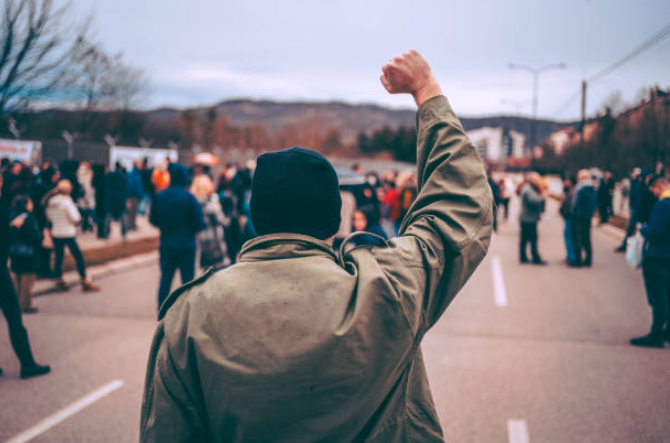Racial and social justice issues have long been a part of the history of the state, with a legacy of discrimination and inequality that has impacted people of color and marginalized communities for centuries. From the colonization and enslavement of Indigenous and African peoples to the ongoing struggles for civil rights and equal treatment, the state has a complex and often troubled history when it comes to issues of race and social justice.
Colonization and Enslavement
The state’s history of racial and social justice issues begins with the colonization and enslavement of Indigenous and African peoples. European colonists brought with them a belief in their own superiority and a desire to conquer and control the land and its inhabitants. This led to the dispossession and violence against Indigenous peoples, as well as the forced removal of many Native American tribes from their ancestral lands.
At the same time, the state was also home to a significant population of African slaves, who were brought to the region to work on plantations and in other industries. Slavery was a cornerstone of the state’s economy, and it was not until the end of the Civil War and the passage of the 13th Amendment to the Constitution that slavery was officially abolished in the United States.
Civil Rights Movement
The Civil Rights Movement of the mid-20th century was a significant moment in the state’s history of racial and social justice issues. During this time, people of color, particularly African Americans, organized and protested against the systemic racism and discrimination that had long been a part of their lives. This included the segregation of schools, housing, and public facilities, as well as the denial of voting rights and other basic civil liberties.
The Civil Rights Movement was marked by significant events, such as the Montgomery Bus Boycott, the Greensboro Sit-Ins, and the Freedom Rides, which helped to bring national attention to the issues faced by people of color in the state. The Civil Rights Act of 1964 and the Voting Rights Act of 1965 were important pieces of legislation that helped to dismantle segregation and discrimination, and they remain key components of the legal framework for civil rights in the United States today.
Ongoing Struggles for Social Justice
While significant progress has been made in the state’s history of racial and social justice issues, there is still much work to be done. Many communities of color continue to experience disproportionate levels of poverty, unemployment, and other social and economic challenges. In addition, there have been numerous instances of police brutality and racial profiling, as well as ongoing issues with discrimination in the criminal justice system.
There are also ongoing struggles for social justice related to issues such as immigration, LGBTQ+ rights, and disability rights. These issues highlight the need for ongoing activism and advocacy, as well as for systemic changes that address the root causes of inequality and discrimination.
FAQs:
1. What is the state’s history of racial and social justice issues?
The state’s history of racial and social justice issues refers to the long-standing issues of discrimination and inequality that have impacted people of color and marginalized communities in the state. This includes the colonization and enslavement of Indigenous and African peoples, as well as ongoing struggles for civil rights and equal treatment.
2. What events were significant in the Civil Rights Movement in the state?
The Civil Rights Movement in the state was marked by significant events such as the Montgomery Bus Boycott, the Greensboro Sit-Ins, and the Freedom Rides, which helped to bring national attention to the issues faced by people of color in the state.
3. What legislation has helped to address racial and social justice issues in the state?
The Civil Rights Act of 1964 and the Voting Rights Act of 1965 were important pieces of legislation that helped to dismantle segregation and discrimination in the state. These laws, along with other federal and state legislation, form the legal framework for civil rights in the United States.
4. Are there ongoing struggles for social justice in the state?
Yes, there are ongoing struggles for social justice in the state related to issues such as race, immigration, LGBTQ+ rights, and disability rights. These issues highlight the need for ongoing activism and advocacy, as well as for systemic changes that address the root causes of inequality and discrimination.
5. What can be done to address racial and social justice issues in the state?
There are many steps that can be taken to address racial and social justice issues in the state. This can include supporting organizations and movements that work towards social justice, participating in activism and advocacy efforts, and advocating for policy and systemic changes that promote equality and justice for all. It is also important to educate oneself about these issues and to engage in open and respectful dialogue with others to promote understanding and progress.
Conclusion:
The state’s history of racial and social justice issues is a complex and often troubled one, but it is also a history of progress and resilience. From the struggles of the Civil Rights Movement to the ongoing efforts to create a more just and equal society, people of color and marginalized communities have always stood up for their rights and fought for change. While there is still much work to be done, it is important to recognize and honor the contributions of those who have worked and continue to work toward a more just and equitable society.


